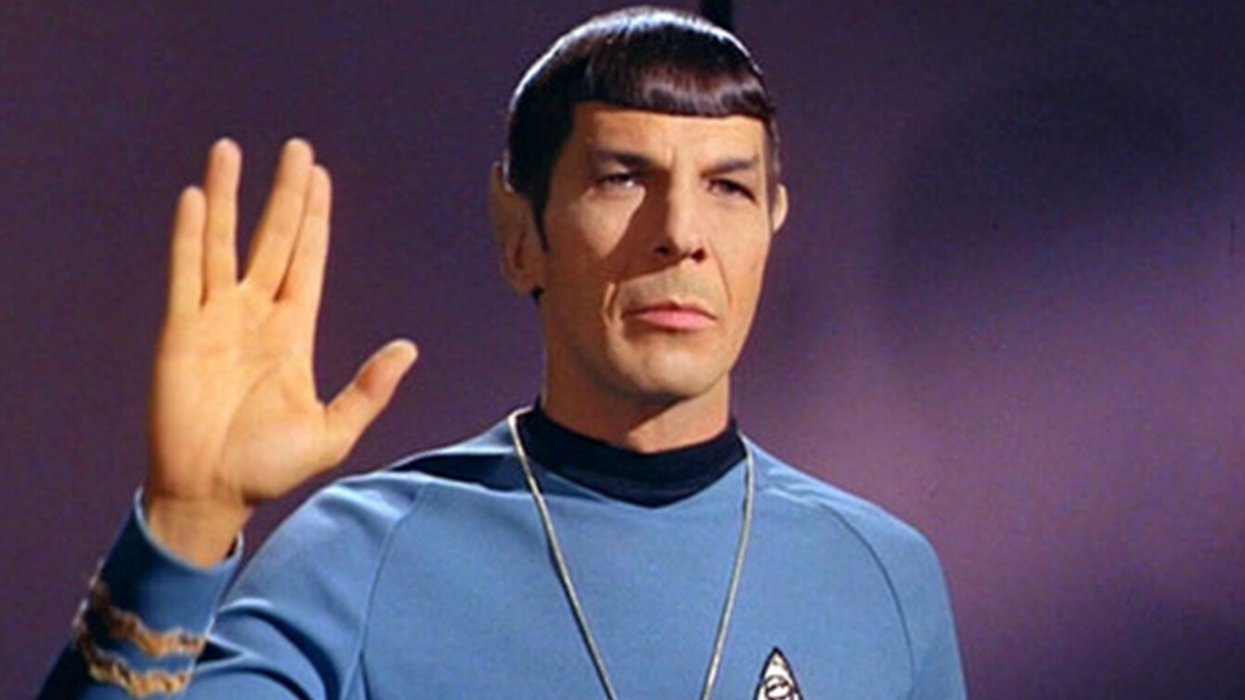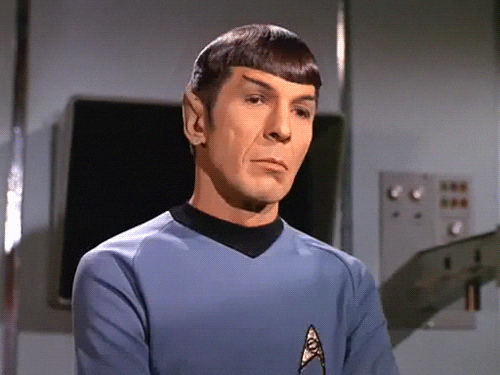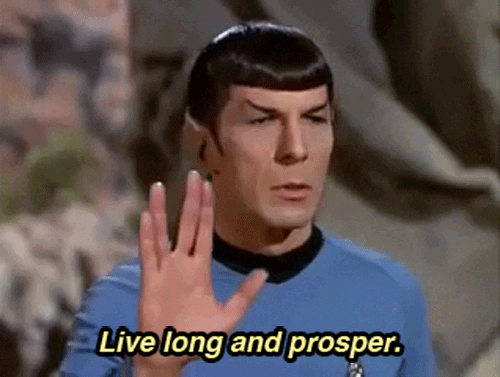Transgender people face a humongous task on the way to accepting themselves.
Religious faiths, family dynamics and social concepts about sex at birth and gender are all powerful reasons to quiet their inner truth.
For many, a support system is a major factor in self acceptance. One Star Trek fan shared that supportive communities arise in unexpected places.
Andy Winder was a sophomore at Brigham Young University, a Mormon-run institution, when he began to transition to male with hormone replacement therapy.
He was one of the first transgender men to do that in the college's history.
That fact alone paints the picture of a trailblazing young man willing to push boundaries. And while that is true, a blog post of Winder's offers a more honest account of a long road to self-acceptance.
The post appears on the Star Trek fan website, which may seem an unlikely place for Winder's personal journey.
But the essay, "Spock Taught Me to Accept Myself as a Transgender Man", is right where it needs to be.
Winder begins by discussing his first exposure to Star Trek at age 15, in a high school creative writing class.
The class watched an episode in which Spock struggles to navigate his emotions after an illness wipes out his personal boundaries.
"I was enamored with this scene and especially with Spock. Something about the way he tried so hard to repress an inherent, but shameful part of himself spoke to me."
Winder sheds light on the timing of that experience.
"Around that time I'd realized that though I'd grown up Mormon, a religion that preaches compassion for LGBTQ people but views same-sex relationships and transitioning as sinful, I was transgender."
Feeling alienated from church, family and community, Winder found solace in Star Trek.
"I struggled to trust others at my new school, where around 84% of my classmates were also Mormon."
"Star Trek gave me characters that helped me feel less alone."
"I was in love with the idea of a future where people sought to understand the unknown instead of fear it, where a sense of hope and awe seemed to illuminate the universe."
Holding an acceptance of his queer identity alongside his enthusiasm for the Mormon faith was a peculiar position for Winder.
Later in the essay, Winder elaborates even more on the parallels he saw between Spock's journey and his own.
"Spock viewed any actions that reflected his half-human heritage as repulsive. But while he continues to deeply favor his Vulcan identity, he begins to let his human half in as well."
As Winder grew and moved on to college, he enrolled in counseling and found other Mormons who shared his struggles.
"For a long time, I couldn't see how something that alienated me from my Mormon community could benefit my life in any way."
"But I had met my best friends through the queer community, including many other trans Mormons who taught me that I was not alone."
In the middle of his sophomore year he had enough self-acceptance to act on his need for change.
"Thanks to a trans-affirming clinic, I received a testosterone prescription and became one of the first transgender men on hormone replacement therapy at the church-run college Brigham Young University."
Winder closes the piece with one last salute to Spock.
"Through Spock, I've learned that growing older means taking what you've learned and discovering for yourself what is right or wrong."
"Though the Mormon church views LGBTQ identities and relationships as a sin, I've learned more about unconditional love and courage through my queer friends than I ever had sitting in church."
"Like Spock's respect for Vulcan philosophy, I still value the lessons Mormonism taught me. I grew up in a community that believes every person is deserving of love and that joy is the true purpose of life. For that, I will always be grateful."
Winder's story shows that transitioning is not as simple as shedding the old and adopting the new. It's about carrying both at the same time, an even more complicated feat than replacing the past with the present.
The Adam Nimoy documentary For the Love of Spock - Special Director's Edition is available here.
















 @DuncanCecil/X
@DuncanCecil/X @@realDonaldTrump/Truth Social
@@realDonaldTrump/Truth Social @89toothdoc/X
@89toothdoc/X @xray_media/X
@xray_media/X @CHRISTI12512382/X
@CHRISTI12512382/X
 @sza/Instagram
@sza/Instagram @laylanelli/Instagram
@laylanelli/Instagram @itssharisma/Instagram
@itssharisma/Instagram @k8ydid99/Instagram
@k8ydid99/Instagram @8thhousepath/Instagram
@8thhousepath/Instagram @solflwers/Instagram
@solflwers/Instagram @msrosemarienyc/Instagram
@msrosemarienyc/Instagram @afropuff1/Instagram
@afropuff1/Instagram @jamelahjaye/Instagram
@jamelahjaye/Instagram @razmatazmazzz/Instagram
@razmatazmazzz/Instagram @sinead_catherine_/Instagram
@sinead_catherine_/Instagram @popscxii/Instagram
@popscxii/Instagram
